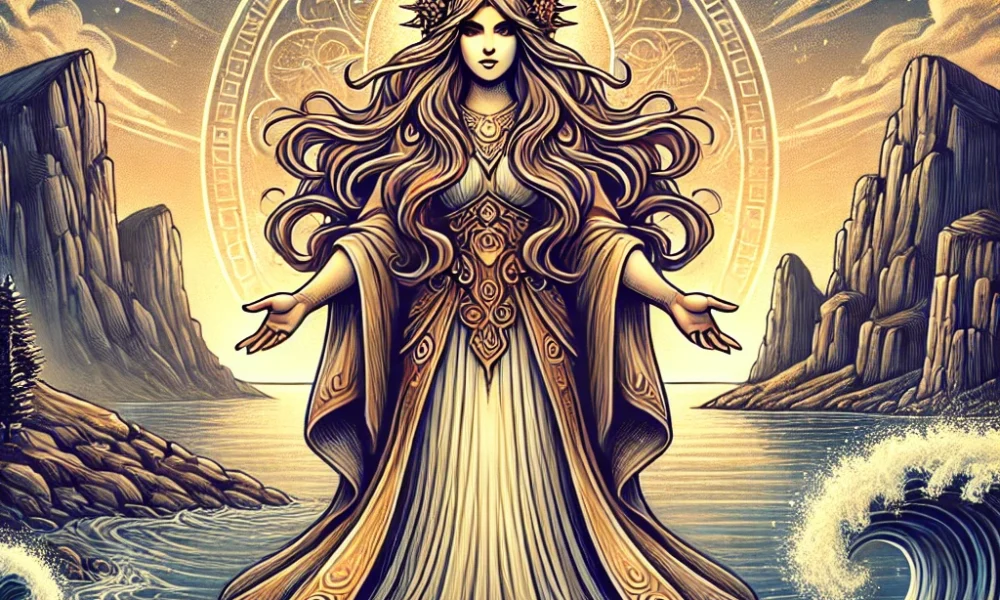In the realm of modern literature, few names resonate with the same enchanting allure as Madeline Miller.
Known for her ability to breathe new life into ancient myths, Miller has carved a niche for herself as a master storyteller.
Her novel Circe, a reimagining of the eponymous Greek mythological figure, stands as a testament to her talent for weaving timeless tales with contemporary relevance.
In this blog, we’ll explore the magic of Madeline Miller’s Circe, its themes, and why it has captivated readers worldwide.
Table of Contents
Who Is Circe?
In Greek mythology, Circe is often depicted as a sorceress living on the island of Aeaea. She is best known for her role in Homer’s Odyssey, where she turns Odysseus’s men into swine.
While mythology paints her as a secondary character—a dangerous enchantress—Madeline Miller flips the script, giving Circe a voice, a story, and a depth that transcends her mythological origins.
Madeline Miller’s Circe: A Modern Retelling
Miller’s Circe is not just a retelling; it’s a reclamation.
The novel delves into the life of Circe, from her childhood as the overlooked daughter of the sun god Helios to her transformation into a powerful witch.
Through Miller’s lyrical prose, Circe emerges as a complex, multidimensional character—flawed, resilient, and deeply human.
The novel explores themes of power, identity, and transformation.
Circe’s journey is one of self-discovery, as she navigates a world dominated by gods and men.
Her exile to Aeaea becomes not a punishment, but an opportunity for growth.
Miller’s portrayal of Circe as a woman who defies the expectations placed upon her is both empowering and relatable.
Why Circe Resonates with Readers
1. Feminine Power and Agency
Circe’s story is one of empowerment.
In a world where gods and men seek to control her, she carves out her own path. Her magic, often seen as a threat, becomes a tool for liberation.
Miller’s portrayal of Circe as a strong, independent woman resonates deeply in today’s world, where discussions about gender and power are more relevant than ever.
2.The Beauty of Miller’s Prose
Madeline Miller’s writing is nothing short of poetic.
Her descriptions of the natural world, the gods, and Circe’s emotions are vivid and immersive.
Reading Circe feels like stepping into a dream—one where every word is carefully chosen to evoke emotion and imagery.
3. Timeless Themes
While Circe is rooted in ancient mythology, its themes are universal.
Love, loss, betrayal, and the search for identity are experiences that transcend time and culture.
Miller’s ability to connect these ancient stories to modern readers is a testament to her skill as a writer.
4. A Fresh Perspective on Mythology
Miller’s retelling challenges the traditional narratives of Greek mythology.
By centering the story on Circe, a character often relegated to the sidelines, she invites readers to reconsider the roles of women in these ancient tales.
This fresh perspective is both refreshing and thought-provoking.
Cinderella Summary: A Timeless Tale of Hope, Kindness, and Magic
The Legacy of Madeline Miller
Madeline Miller’s Circe is more than just a novel; it’s a cultural phenomenon.
Since its publication in 2018, it has garnered critical acclaim, won numerous awards, and become a bestseller.
But perhaps its greatest achievement is the way it has sparked a renewed interest in mythology, inspiring readers to explore the rich tapestry of ancient stories.
Miller’s work stands as a bridge between the past and the present, showing us that these ancient myths still have much to teach us.
Her ability to humanize mythological figures, to make their struggles and triumphs feel real and relevant, is what sets her apart as a writer.
Final Thoughts
Madeline Miller’s Circe is a masterpiece of modern literature.
It is a story of resilience, transformation, and the enduring power of storytelling. Through Circe’s journey, Miller reminds us of the importance of finding our own voice, our own power, and our own place in the world.
Whether you’re a fan of Greek mythology or simply love a good story, Circe is a must-read.
It’s a book that stays with you long after you’ve turned the last page, a testament to the timeless magic of Madeline Miller’s storytelling.
FAQ’s On Circe Madeline Miller
1. What is the story of Circe by Madeline Miller?
“Circe” by Madeline Miller is a novel that reimagines the life of the titular character from Greek mythology.
Circe, a nymph and daughter of the sun god Helios, is banished to a deserted island after displaying her witchcraft powers.
Over centuries, she hones her magical abilities, encounters famous mythological figures like Odysseus, and ultimately seeks her own path to power and self-discovery.
The story explores themes of independence, transformation, and resilience.
2. Who did Circe fall in love with?
Circe falls in love with Odysseus, the clever mortal hero of Homer’s Odyssey.
During his journey home from the Trojan War, Odysseus stays on her island for a year, and they develop a deep connection.
However, their relationship is complicated, as Odysseus is ultimately driven by his desire to return to his wife, Penelope.
Circe’s love for him is bittersweet, as she comes to understand the limitations of their bond.
3. Is Circe about feminism?
Yes, Circe by Madeline Miller is often interpreted as a feminist retelling, as it centers on Circe’s journey of self-empowerment, independence, and defiance against patriarchal gods and societal expectations in Greek mythology.
4. Who made Circe pregnant?
Circe becomes pregnant with her son, Telegonus, after a relationship with Odysseus.
5. Was Circe considered beautiful?
In Greek mythology and Madeline Miller’s Circe, Circe is described as beautiful, but her beauty is often overshadowed by her divine siblings and the gods’ disdain for her.
Her power, intelligence, and witchcraft ultimately define her more than her appearance.
6. Who is Circe’s husband?
In Greek mythology, Circe does not have a definitive husband, but she is sometimes associated with Odysseus as a lover.
In Madeline Miller’s Circe, she remains independent and does not marry, focusing instead on her own journey and relationships, including her bond with her son, Telegonus.
7. Why does Circe turn men into pigs?
Circe turns men into pigs to protect herself from their arrogance, disrespect, and threats, using her witchcraft to assert her power and independence.


